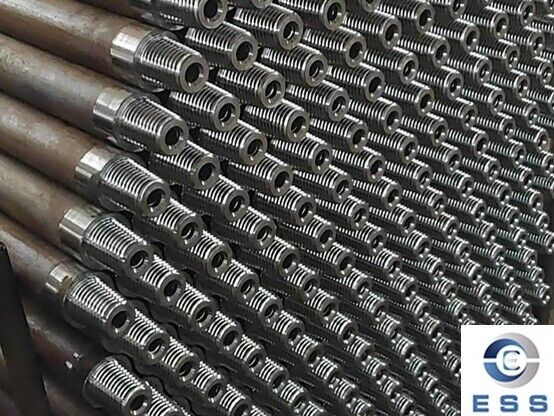
Oil drill pipe is the key tools used for drilling in the process of oil extraction. They are
usually made of high-strength alloy steel and have a series of significant
advantages and disadvantages.
Advantages
1. High strength and hardness
Oil drill pipe is made of high-strength
alloy steel, with high hardness and strength, and can withstand the huge
pressure and challenges of complex geological conditions during drilling.
2. Good toughness
Although the drill pipe has high hardness,
it also has a certain toughness, which enables it to adapt to complex bottom
hole geological conditions and is not easy to break due to excessive force.
Compared with carbon
steel pipe, oil drill pipes have better toughness and can effectively
reduce the risk of breakage.
3. Strong corrosion resistance
Drill pipes will be exposed to various
corrosive media such as mud during drilling, but high-quality oil drill pipes
usually have good corrosion resistance and can extend their service life. Its
corrosion resistance is better than that of ordinary seamless
steel pipe, and it is particularly suitable for use in complex downhole
environments.
4. Versatility
Oil drill pipes are not only used to
transmit torque and transport drilling fluids, but also play the role of
lifting, lowering or rotating drilling and grinding equipment. They are
indispensable tools in drilling operations.
Disadvantages
1. High manufacturing cost
Due to the fact that oil drill pipes need
to be made of high-strength alloy steel and undergo strict process treatment,
their manufacturing cost is relatively high.
2. Harsh operating environment
The drilling environment is usually very
harsh, and the drill pipe needs to withstand a variety of harsh conditions such
as high temperature, high pressure, and corrosion, which may cause the
performance of the drill pipe to deteriorate or be damaged.
3. High operating risk
During the drilling process, the connection
part usually adopts a pipe flange structure. The drill pipe may break or fall off due to excessive force, poor
connection, etc., which brings huge risks to the drilling operation.
4. Fast technology update
With the continuous development of drilling
technology, the performance requirements for oil drill pipes are also
constantly increasing. Traditional drill pipes may no longer meet the needs of
modern drilling operations and need to be constantly updated.
Precautions
1. Quality control
To ensure the quality and performance of
drill pipes, manufacturers should strictly control the quality of raw
materials, production processes and inspection standards.
2. Reasonable use
During drilling operations, drill pipes
should be used reasonably to avoid damage to the drill pipes due to overload or
improper operation.
3. Maintenance
Inspect, clean and maintain the drill pipe
regularly to find and deal with potential problems in time and extend the
service life of the drill pipe.
Summary
In summary, oil drill pipe plays an
important role in oil production, but it has both advantages and disadvantages.
During use, its advantages should be fully utilized, and effective measures
should be taken to deal with its disadvantages to ensure the safety and
efficiency of drilling operations.
Read more: Nondestructive Testing of Oil Drill Pipe o How Many Types of Drill Pipe Threads Are There?













 Eastern Steel Manufacturing Co.,Ltd not only improve product production and sales services, but also provide additional value-added services. As long as you need, we can complete your specific needs together.
Eastern Steel Manufacturing Co.,Ltd not only improve product production and sales services, but also provide additional value-added services. As long as you need, we can complete your specific needs together.










